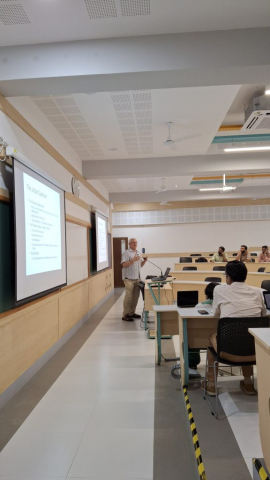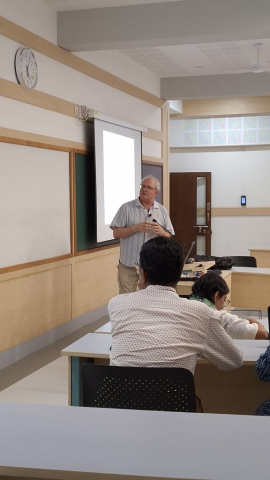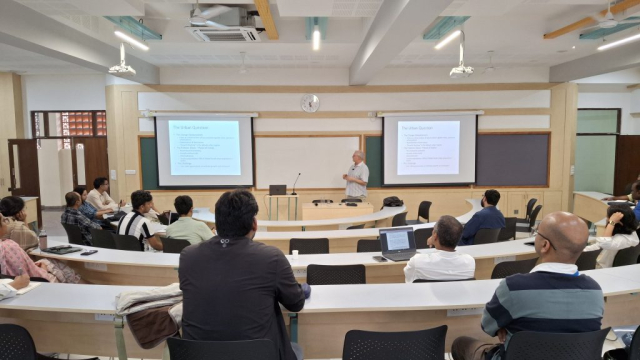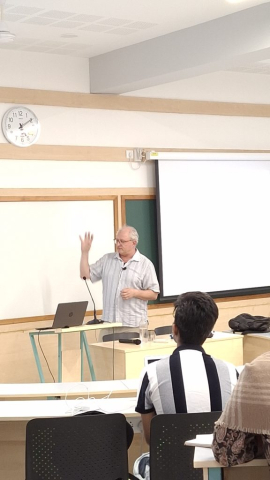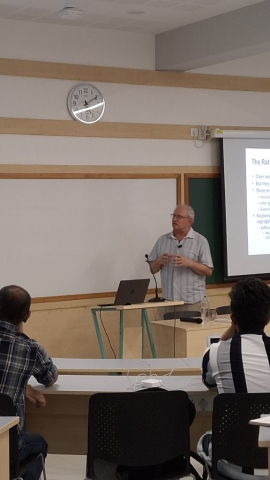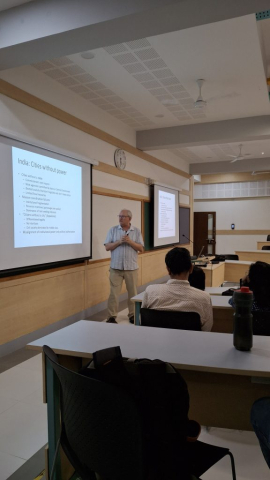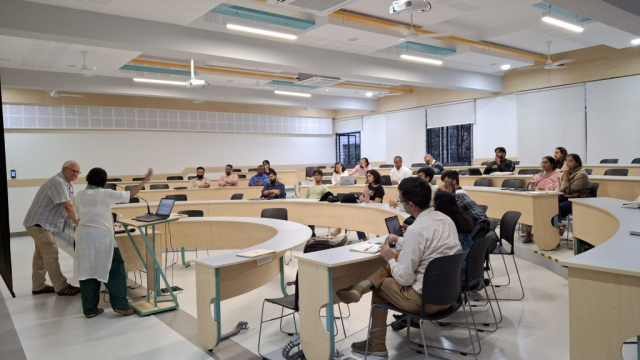Talk on ‘Urban Governance in Brazil, India and South Africa: Can Mega Cities be more Inclusive?’ | Patrick Heller, Brown University
Room 203, New Academic Block
Thursday, December 19, 2024, 5:00 pm
Open to the public.
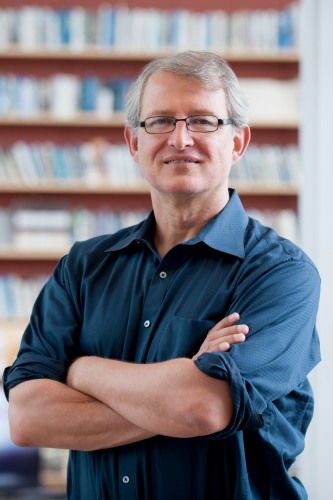 NLSIU’s HUPA Chair on Urban Poor and the Law is organising a talk titled ‘Urban Governance in Brazil, India and South Africa: Can Mega Cities be more Inclusive?’ by Patrick Heller of Watson Institute for International and Public Affairs at Brown University.
NLSIU’s HUPA Chair on Urban Poor and the Law is organising a talk titled ‘Urban Governance in Brazil, India and South Africa: Can Mega Cities be more Inclusive?’ by Patrick Heller of Watson Institute for International and Public Affairs at Brown University.
Abstract
In the age of globalization, megacities in the developing world have emerged as the most contested sites of the socio-spatial contradictions of capitalism. In contrast to deterministic accounts that have dominated the literature, Patrick Heller combines insights from the developmental state and the urban governance literatures to show that political and institutional factors at the national and local level can shape divergent trajectories of urban transformation. Comparing the modal megacity in three democratic, highly unequal, globally integrated and rapidly transforming countries, he focuses on service delivery and slum-rehabilitation to show that there is significant variation in the capacity of cities to coordinate growth and inclusion. These varied outcomes are explained on the one hand by centre-local state relations that configure the degree of city capacity and governance autonomy, and on the other hand by the degree to which the local state is embedded in civil society.
About the speaker
Patrick Heller is the Lyn Crost Professor of Social Sciences, Professor of International and Public Affairs and Sociology, and the Interim Director of Graduate Program in Development at the Watson Institute for International and Public Affairs at Brown University.
Excerpts from the Talk
On Brazilian cities
“So in 1988, Brazil gets the most progressive constitution. Most legal scholars think it’s the most progressive constitution. Among other things, it has a long list of social rights. These are actionable social rights. You can go to the courts and sue government if the state doesn’t deliver on these rights.
The rights also include the right to participation. So they introduce sectoral councils, participatory budgeting, all sorts of mechanisms to empower citizens to be part of governance as it were. And the movements themselves celebrate the sort of politics of what they call new citizenship. So explicitly rejecting the patronage and the populism of the past in favor of active citizen engagement.”
On Indian cities
“I wanna argue that Indian cities are cities without a real state, they’re run from the outside, they’re run through bureaucratic agencies and commissioners. There’s not a lot of coordination. In fact, a lot of coordination failure. The rent seeking interests tend to dominate. The incentives to local politicians are really perverse. They can’t do legislation. They can’t do policy, so they do patronage. They can get you a tanker truck. They can’t get you piped water. Right? And it creates all sorts of perverse incentives.”
On South African cities
“South Africa is well placed to actually address the legacies of racial exclusion. The ANC comes to power with 65% of the vote. It inherits a high capacity local state. Apartheid was national legislation that existed, which passed in 48, but the apartheid system was built at the city level. These were all white colonial cities, and they built apartheid, to separate themselves from the population but also to maintain them in a state of servitude and cheap labor, etc. And so they developed tremendous capacity, you know, enforcing systemic racial segregation.
You need a lot of data, a lot of policing. You need to be able to segregate the workplace, neighborhoods, social relations, public spaces, etc. So these are high capacity states that are inherited by the post apartheid government. They have a massive political mandate, 65% of the vote, to deracialize the city. The South African constitution is one that, you know, has some of the most enumerated social rights of any constitution in the world… Plus, it does constitute cities as constitutionally recognized third spheres of government with full autonomy and legislative powers and the power to tax, including voluntary taxes, etcetera.”


